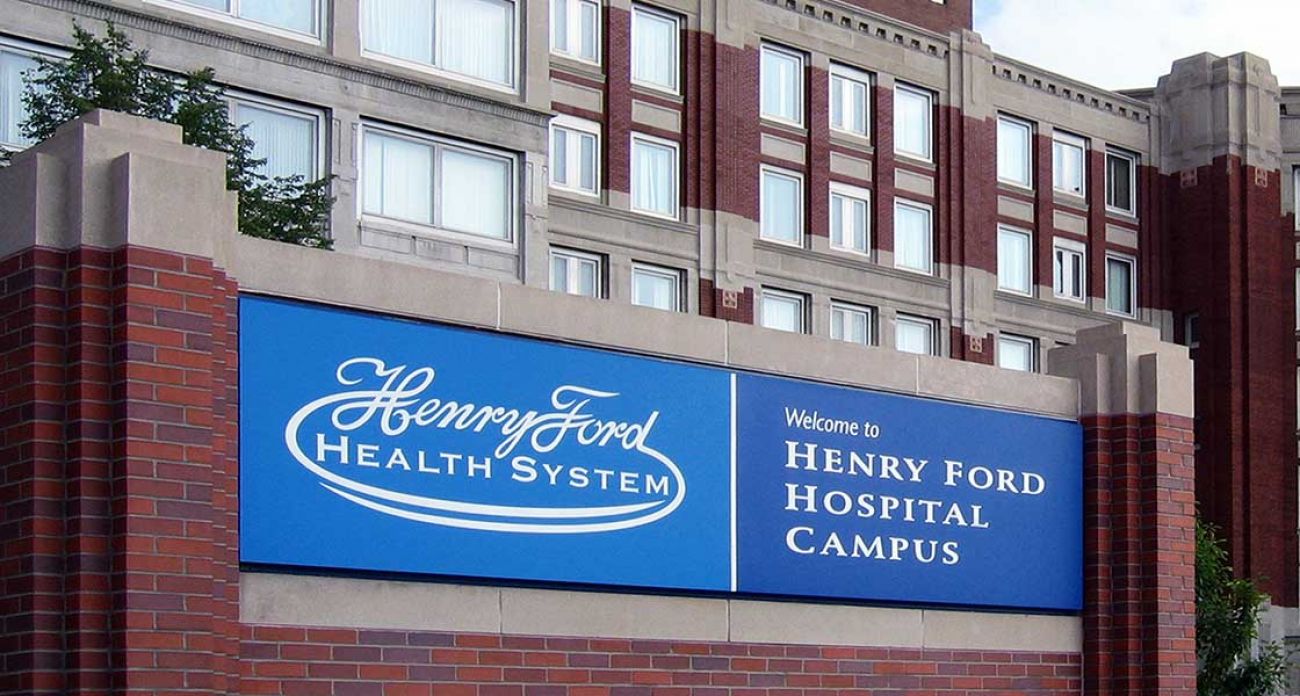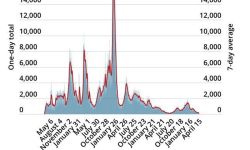Detroit hospital: We’re nowhere near ‘worst-case’ coronavirus decisions


Henry Ford Health System officials on Friday offered assurances that their resources aren’t at capacity and have yet to consider “worst-case scenario” care decisions amid the coronavirus epidemic.
The assurances followed the release Thursday of a single-page draft policy to patients and families that offered grim guidelines for providers if patients outnumbered ventilators.
The letter said the very sickest patients — such as terminal cancer patients or those with underlying heart conditions — might be denied ventilator care in a shortage for a person who is more likely to survive COVID-19.
Dr. Adnan Munkarah, Henry Ford’s executive vice president and chief medical officer said “we've by no means exhausted all of our resources or all of our options to take care of the patients.”
“We have not shared [the letter] with our patients and hopefully, we never have to share it,” he said.
The letter was part of a larger document of about 50 pages, she said. Henry Ford Health System denied a Bridge request to release the document.
- The latest: Michigan coronavirus map, locations, updated COVID-19 news
- What Michigan’s coronavirus stay-at-home order means for residents
- Coronavirus spreading faster in Detroit than nearly anywhere in United States
Munkarah did not give specific numbers about capacity, but said the Detroit-based hospital system has adequate supplies to care for current patients. Henry Ford and other hospital systems will collaborate to distribute patients and supplies if needed, turning to the policy only after all of Michigan’s hospitals have reached capacity, Munkarah said.
The discussion comes as hospitals in the region have recently revised ethics guidelines as the pandemic spreads, said Henry Ford’s ethics director Karen Smith.
Leonard Fleck, a philosophy professor and medical ethicist at Michigan State University, said policies like the one at Henry Ford became more common after the H1N1 pandemic of 2009 and 2010.
Fleck was part of a 2011 state task force that developed pandemic guidelines addressing the ethics of hospital resources in times of shortage. The task force recommended Michigan hospitals adopt pandemic policies and publicize them to inform the public of their existence.
Many hospitals adopted policies, Fleck said, but few if any have made them public.
The policies attempt to provide consistent ethical guidelines during crises. In times of shortage, end-of-life decisions are made not by physicians but committees that consider patients’ likelihood of survival. To avoid discrimination, committee members typically lack information about the patients’ gender, race, sexual orientation or other information not relevant to the patients’ health, Fleck said.
The goal is to “maximize the number of lives and life-years that are saved,” Fleck said.
As COVID-19 spreads, Fleck said, these policies are very likely to be activated in Michigan and elsewhere.
“Hospitals are going to have to make some very hard decisions,” he said.
But Henry Ford’s policy was criticized by Dessa Cosmo, founder of Detroit Disability Power, which advocates for disability rights.
She said the Henry Ford guidance “does a disservice to decision making as well as human dignity” and discriminates against the disabled and chronically ill.
She called on all hospital systems to “clarify policies and commit to non-discrimination of disabled and chronically ill Michiganders.”
Detroit Mayor Mike Duggan, who is the former CEO of Detroit Medical Center, called Henry Ford’s pandemic discussions “honest” during a CNN interview Friday.
“Every major hospital system in New York and Detroit and Chicago and Seattle are having exactly the same conversations internally,” he said.
“You would be irresponsible as a health system CEO if you weren't planning for that eventuality,” he added.
RESOURCES:
- Michigan families can get food, cash, internet during coronavirus crisis
- How to give blood in Michigan during the coronavirus crisis
- Michigan coronavirus Q&A: Reader questions answered
- How to apply for unemployment benefits in Michigan amid coronavirus crisis
- How to get tested for coronavirus in Michigan
- The first line of defense against coronavirus: Try soap, not a mask

See what new members are saying about why they donated to Bridge Michigan:
- “In order for this information to be accurate and unbiased it must be underwritten by its readers, not by special interests.” - Larry S.
- “Not many other media sources report on the topics Bridge does.” - Susan B.
- “Your journalism is outstanding and rare these days.” - Mark S.
If you want to ensure the future of nonpartisan, nonprofit Michigan journalism, please become a member today. You, too, will be asked why you donated and maybe we'll feature your quote next time!



